A recent survey found that the install of high-efficiency HVAC equipment is extremely important to 39% of homeowners, and very important to 42% of them. The survey, conducted by Clear Seas Research, the research unit of BNP Media, parent company of The ACHR NEWS, also found their “why,” which involves: lower monthly bills (91%), tax credits/rebates (58%), improved indoor air quality (52%), and better comfort (52%).
How important to you is it to purchase high-efficiency HVAC equipment when replacing your system(s)?
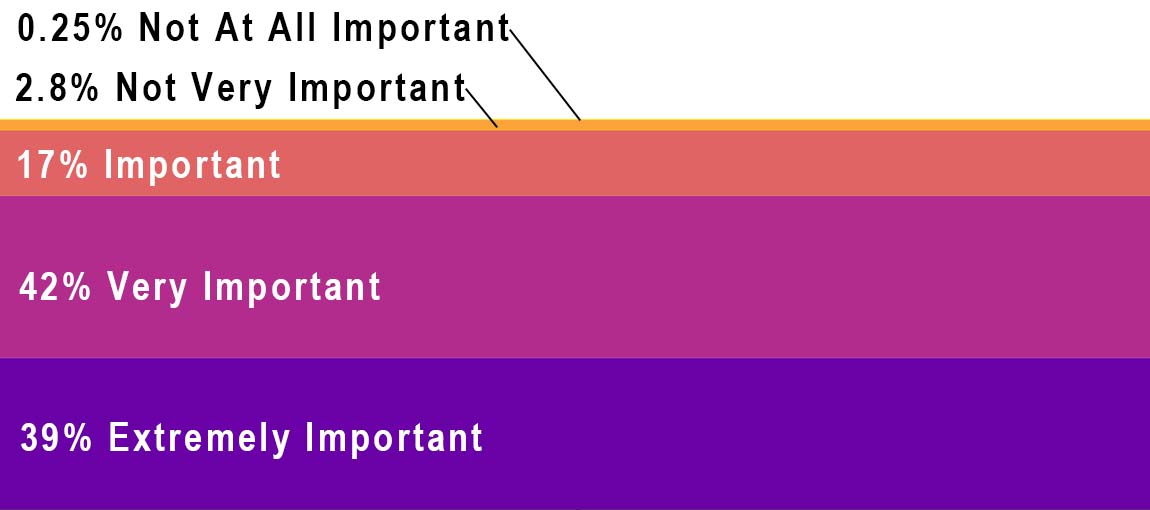
(Courtesy of Clear Seas Research)
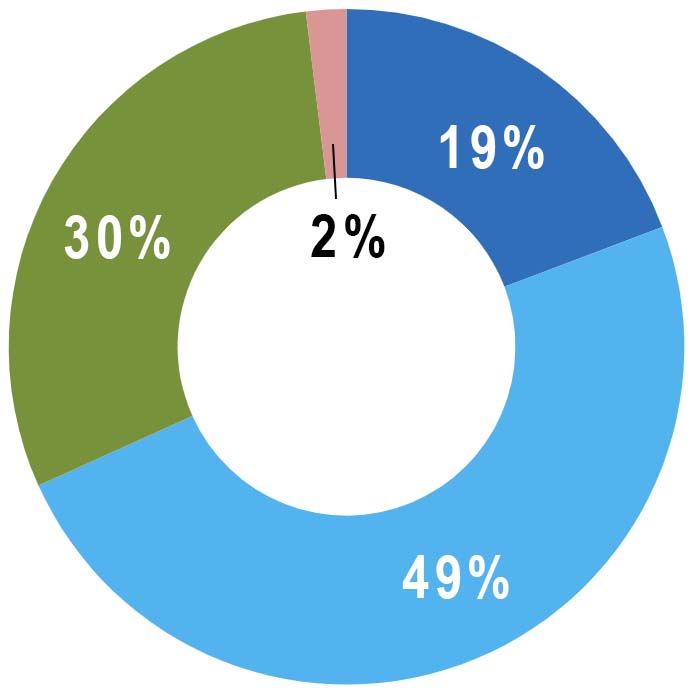
Almost half of contractors surveyed said the install of high-efficiency equipment has increased over the last three years. (Courtesy of Clear Seas Research) (Courtesy of Clear Seas Research)
Out of the contractors surveyed, 19% said the install of high-efficiency equipment has increased greatly and 49% said it’s increased slightly. In the three years to come, 28% said they anticipate installs to increase greatly, and 46% said slightly.
When homeowners know about opportunities installing high-efficiency equipment brings, it often ends up selling itself. Contractors can prioritize these installs by understanding what advantages are most appealing to their customers, and ensuring the right information and processes are instilled in their teams.
While there are a number of reasons why homeowners choose to install high-efficiency equipment, despite the upfront cost being more than a standard equipment install, such as lower utility bills, the one that seems the most prominent to contractors is the level of comfort the equipment brings.
What advantages of high-efficiency HVAC equipment most appeal to you? (Select all that apply)
Sample size: 2023 = 400
Survey shows homeowners most like the advantage of better comfort high-efficiency brings. (Courtesy of Clear Seas Research)
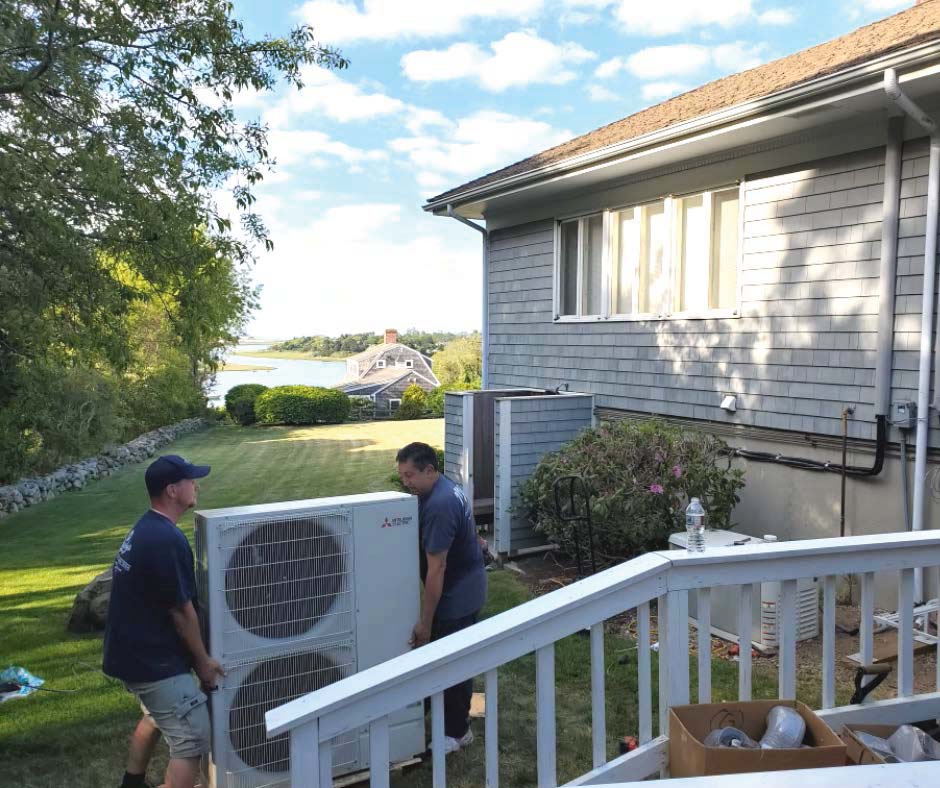
According to the survey, homeowners want lower monthly bills (91%), tax credits/rebates (58%), improved indoor air quality (52%), and better comfort (52%) from their equipment. (Courtesy of Murphy’s Air-conditioning, Heating & Plumbing)
Gary Thompson, vice president of sales and technology at Murphy’s Air-conditioning, Heating & Plumbing, in South Yarmouth, Massachusetts, said even though homeowners experience savings in both energy and monthly utility costs, comfort is what inevitably steers them to installing higher-efficiency equipment.
“I feel the biggest benefit is typically the comfort, if coupled with high-efficiency equipment, that is modulating or variable capacity … and that's really most of my experience — the decision-making process is what sways homeowners toward high-efficiency equipment. [Comfort] is kind of what pushes them to that level,” Thompson said.
But it definitely takes some explaining, said Nate Adams, CEO at HVAC 2.0 and founder of Energy Smart Home Performance. The curse of HVAC is it’s a purchase people oftentimes only make once or twice in their life, so they don’t know about it.
“[Homeowners] assume, like most products, its largely a commodity … And so it takes a combination of some exploration of if they have any issues they'd like to fix in their house, mixed with some explanation of what the capabilities of different pieces of equipment are,” Adams said.
When that equipment is installed, Adams said homeowners usually notice the comfort improvement.
“One client, I loved what she said: ‘It feels like you put a bunch of invisible radiators all over my house.’”
Julian Picard, owner of Centerline Mechanical in Upton, Massachusetts, installs high-efficiency air-source heat pumps (they haven’t done any ground-source heat pump installs, as the cost of those are through the roof, he said), and the main reason homeowners install these air-source heat pumps is because all of the massive incentives the Mass Save program brings to the state, like a $10,000 rebate or 0% financing.
In Picard’s experience, out of Centerline’s 60 high-efficiency installs, only about six clients were really thinking ahead and wanted to install the equipment in order to lower utility costs over time. The other clients made the purchase because of the incentives in place.
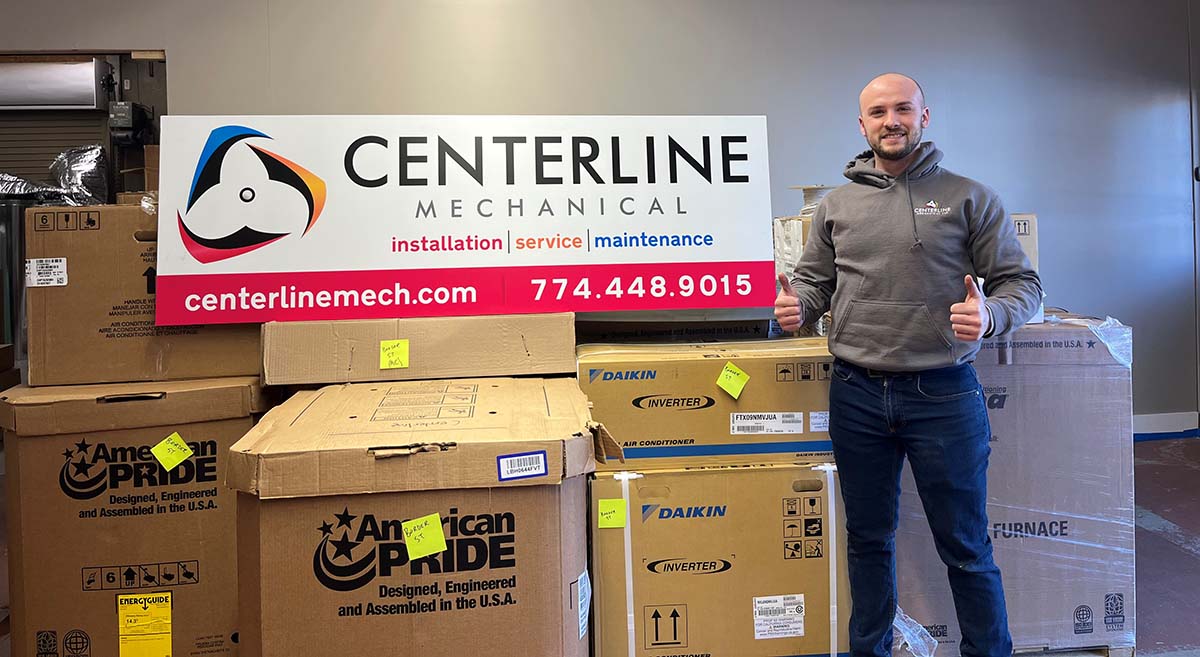
Contractors need to understand why their customers choose to install high-efficiency equipment. (Courtesy of Centerline Mechanical)
Increasing Installs
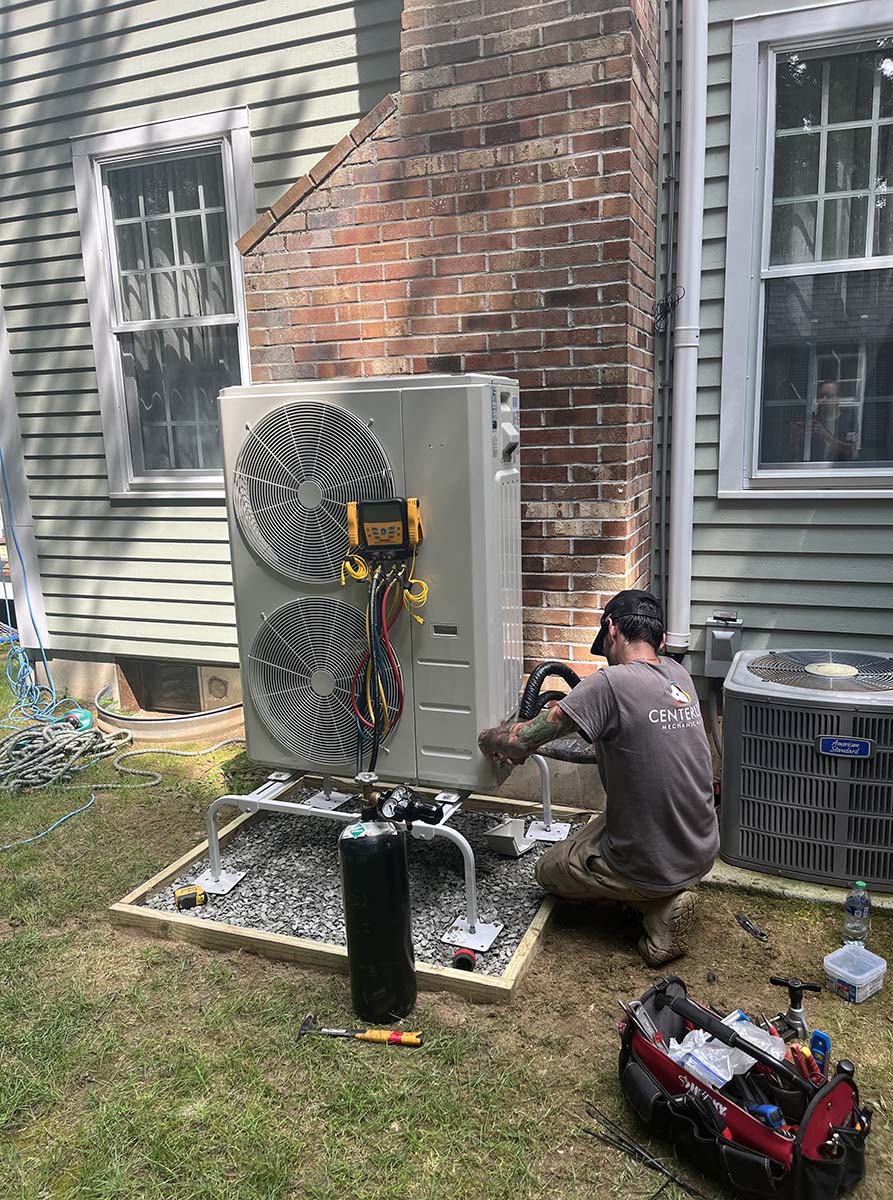
Incentives coupled with growing homeowner knowledge, will likely continue to attribute to the increase of high-efficiency installs in the future. (Courtesy of Centerline Mechanical LLC)
Incentives from in-state energy efficiency programs like Mass Save, or the Inflation Reduction Act, coupled with growing homeowner knowledge of the comfort and savings available to them, will likely boost high-efficiency installs over the last three years, said Joe Parsons, senior marketing sustainability manager for Climate Control Group. Of course, this is completely subject to change pending the future economy and world that lies ahead.
“Tax credits can ebb and flow … so that has caused some contractors to shy away from promoting a system they needed a tax credit to be able to promote and sell,” he said. “But with the 10-year window of opportunity we have through the IRA, and with the increasing efficiency of systems, and the awareness now created around decarbonization requirements … and simply because we've gone from 10% to 30% to 40% on tax credits on the commercial side, that’s driving a lot of interest.”
Joe Parsons of Climate Control Group educates us on why homeowners purchase high-efficiency equipment.
Picard said that for a lot of homeowners, home size has dictated whether or not people move forward with installing high-efficiency equipment. In Massachusetts specifically, to get all the incentives from Mass Save, homeowners have to move away from fossil fuels. This often leads customers to opt to keep their current equipment installed, and that was OK as long as it was the secondary source of heat. But that’s changing in 2024.
“So I'm wondering what that is going to end up doing for my sales for heat pumps … people are still apprehensive of heat pumps, and rightfully so; there’s a lot of moving parts, they cost a lot more to install, and like anything, it’s become political, too,” Picard said.
But once the rebates are factored in, the higher-efficiency equipment is sometimes less expensive than the standard efficiency equipment, Thompson said — which leads to the volume of these installs to increase (when homeowners are aware).
Adams said it has been easier to get homeowners on board with these installs due to amount of equipment available.
“But it all hinges on the education,” Adams said. “It’s a combination of education and also asking them, ‘Do you have comfort issues? In the rooms that are too hot or too cold, do you notice you're doing a lot of dusting?’ So much of it comes down to asking the right questions … then the equipment ends up selling itself.”
Another good question to ask the homeowner to open up the conversation, Adams said, is on scale of zero to 10, with 10 being really bad and zero being no issue at all, are there parts of their house that don’t heat well?
vice president of sales and technology
Murphy’s Air-conditioning, Heating & Plumbing
Let Homeowners Decide
In order to sell high-efficiency equipment, contractors have to prioritize it by educating homeowners on their options in the correct manner. This means knowing what to say, or leading them to a decision they ultimately decide for themselves.
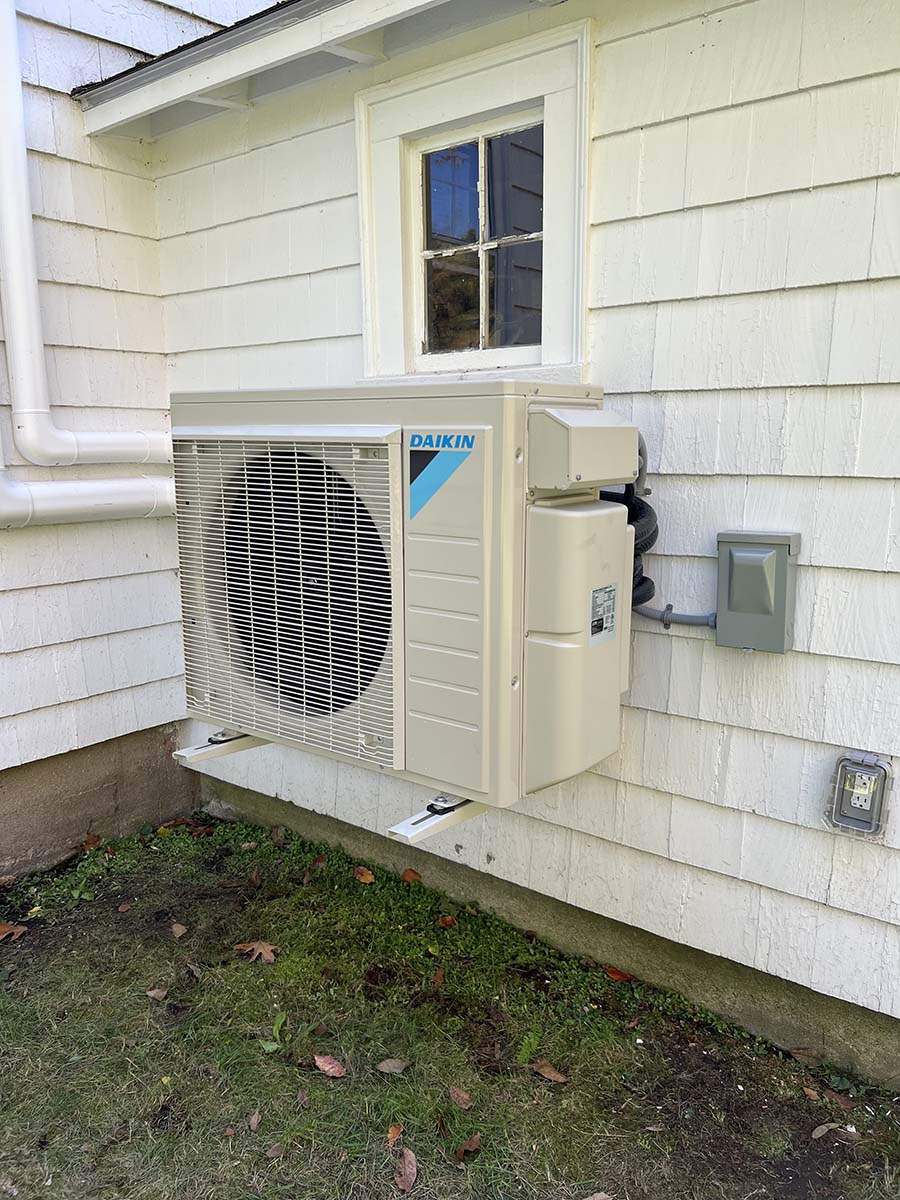
In order to sell high-efficiency equipment, contractors have to prioritize it by educating homeowners on their options in the correct manner. (Courtesy of Centerline Mechanical LLC)
Adams takes homeowners through what he calls “The 6 Functions of HVAC” and educates the homeowners on what HVAC is supposed to do when it does it well, and then educates them on the high-efficiency options available to achieve those six functions.
Much like what “The 6 Functions of HVAC” sets out to do, in order for employees to have the right information to give to homeowners, it has to be provided to them. Contractors have to ensure that what technicians or the sales team knows and communicates about high-efficiency equipment and any incentives associated, is the “right stuff.”
Picard put one of his salespeople and an office manager through the training platform Mass Save has available, so when customers call to ask about it, they have good answers.
At Murphy’s, part of Thompson’s job to be the source of information to the salespeople and install crews so they can have a good understanding of what they can and can’t do, or say or can’t say.
Parsons said that the strategy of selling higher-efficiency equipment really comes down to understanding the customer before the sales pitch.
“You really need to engage them in the conversation, understand their needs, and by doing that — I think that opens up the door to introduce a wide variety of products,” Parsons said. “I always say start out with your most efficient product, and always, always provide a financing option for that as well so that they can understand what their overall costs will be.”
When technicians and salespeople understand the customer’s point of view, they’ll be able to put the homeowner in the right position, with the right information, for the right decision.
“Our job is to bring that knowledge to them, make them understand and then give them options … the vast majority of people will go with the high-efficiency option, because they see the value,” Thompson said.
Contractors have to ensure their homeowners aren’t being pressured on the install of high-efficiency equipment. If incentives and comfort and decreased utility bills are explained and the homeowner still isn’t interested, that’s gotta be that.
“You know the old saying you can lead a horse to water, but you can't make them drink?” Picard said. “I've run into that a few times with people.”
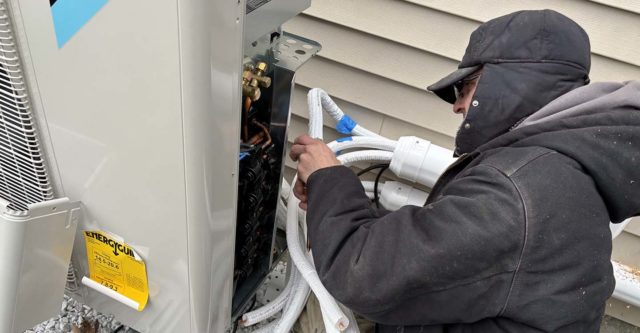






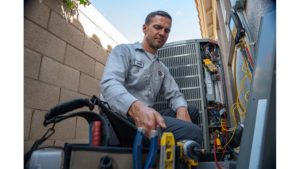
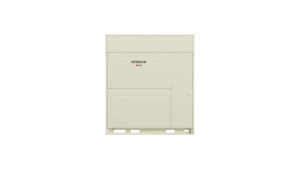
Report Abusive Comment